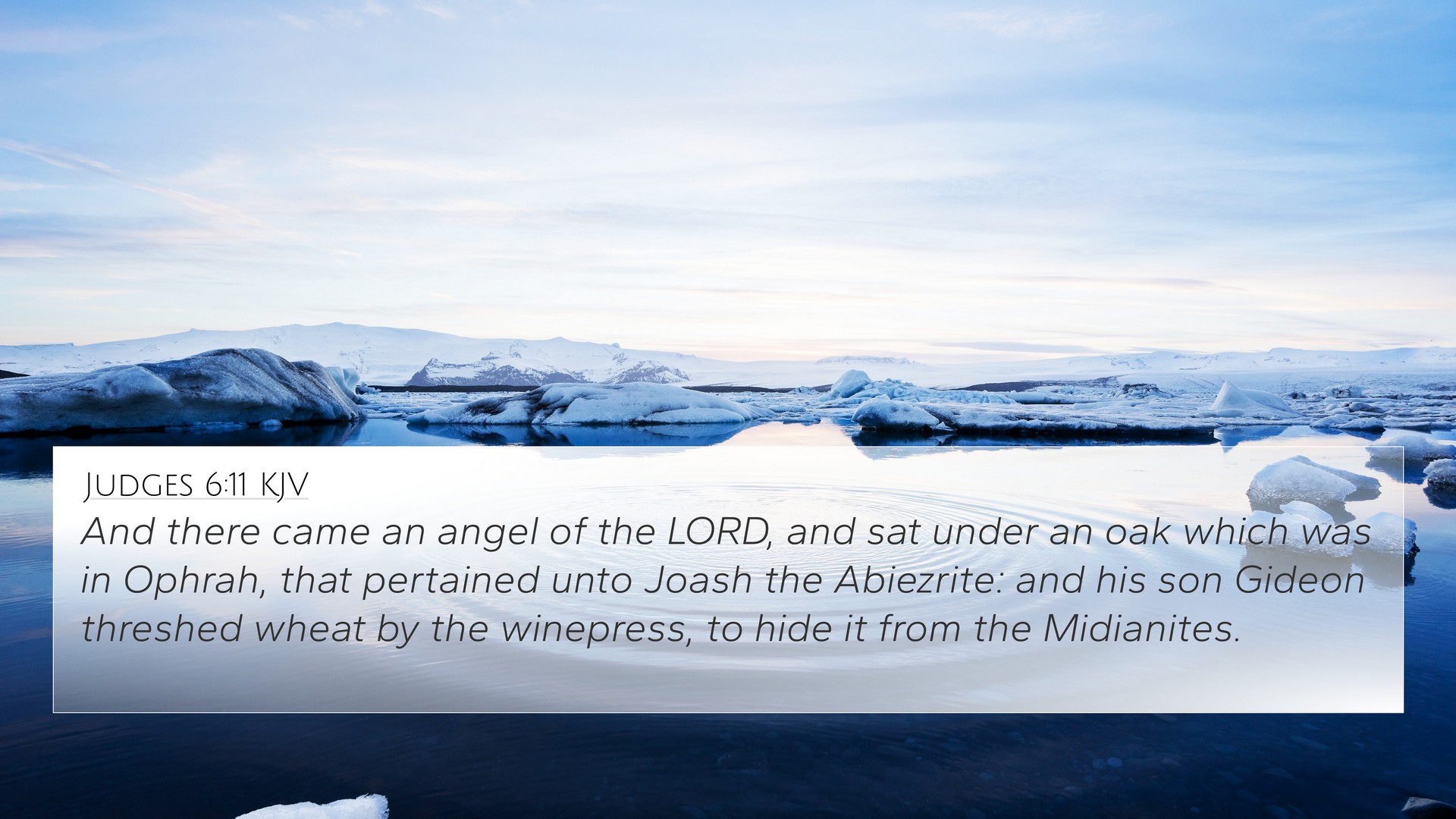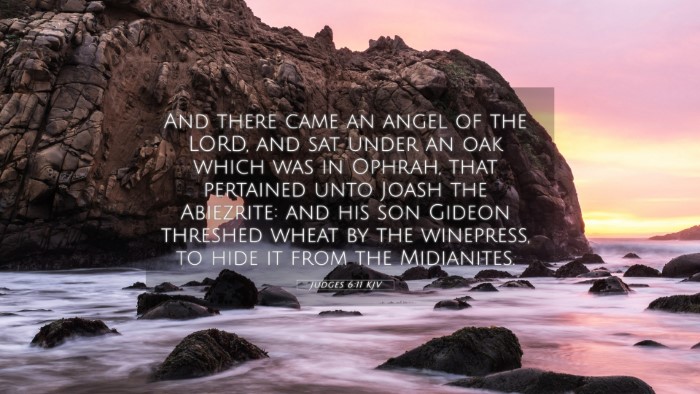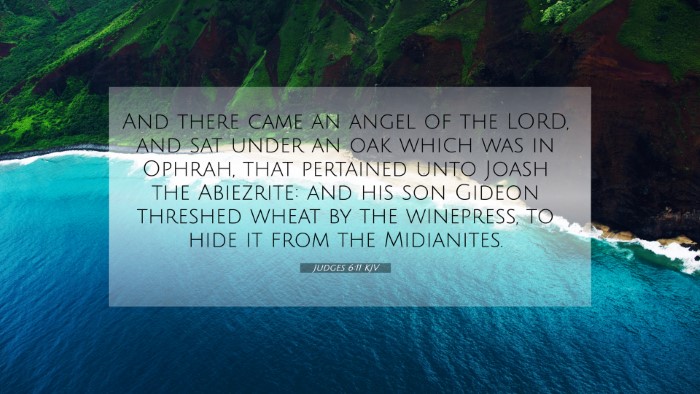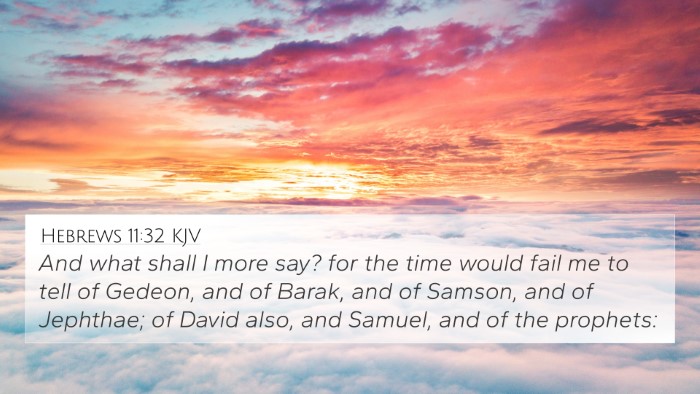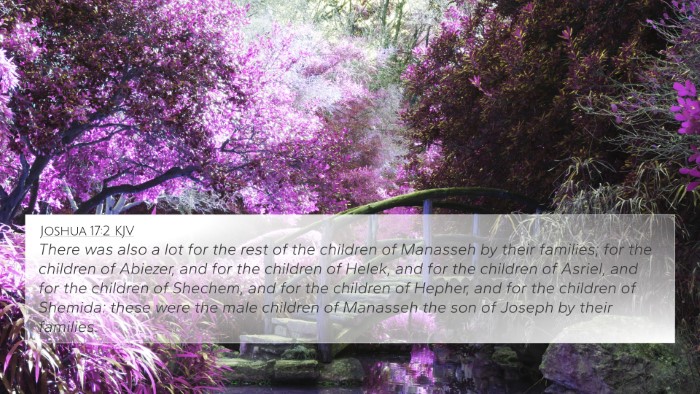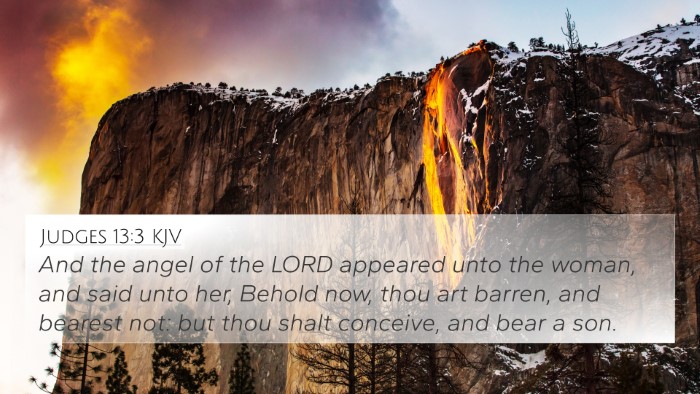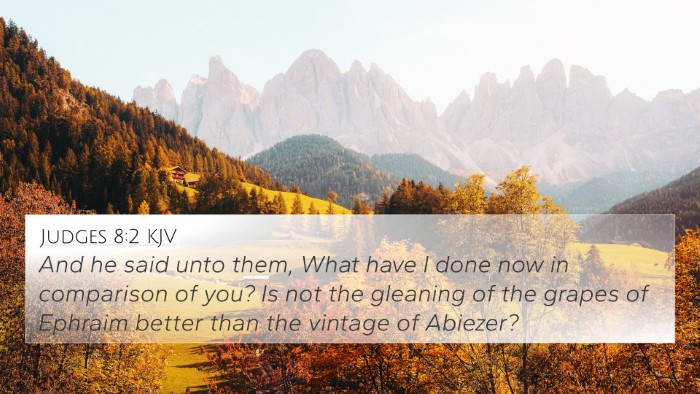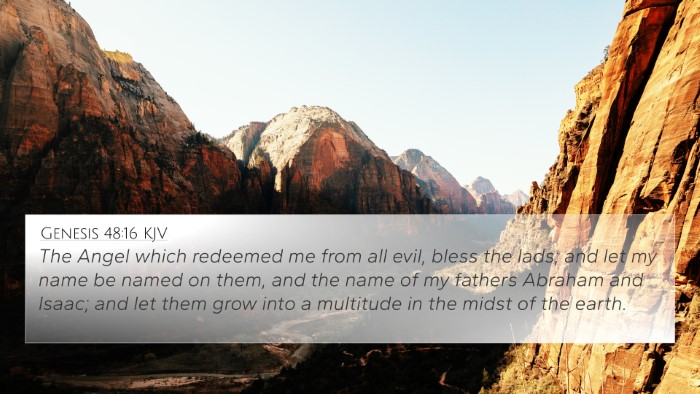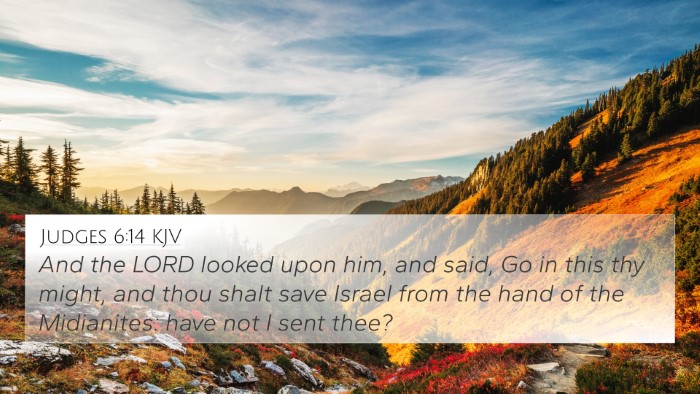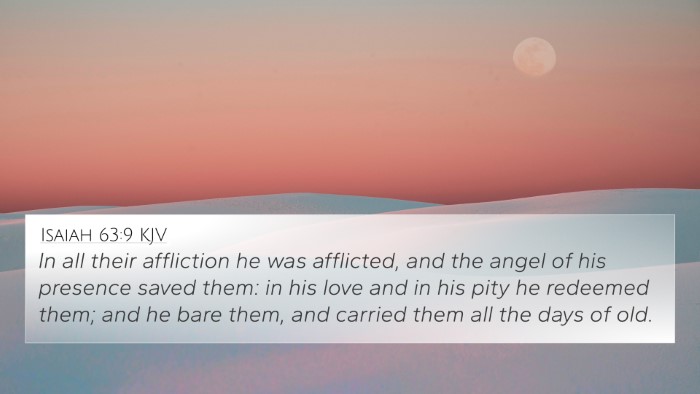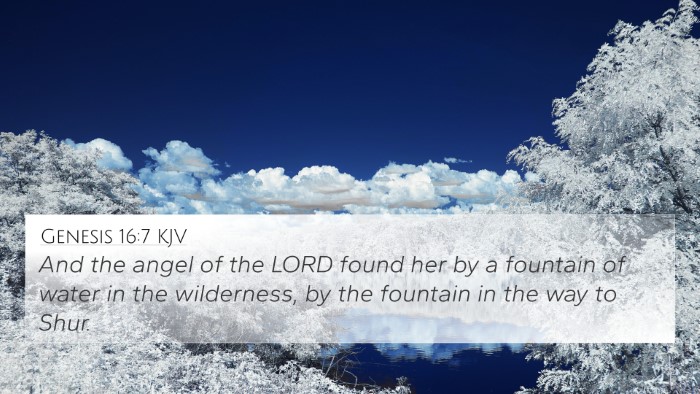Understanding Judges 6:11
Judges 6:11 reads, "Now the angel of the Lord came and sat under the oak that was at Ophrah, which belonged to Joash the Abiezrite; while his son Gideon was beating out wheat in the wine press, to hide it from the Midianites." This verse sets the stage for the calling of Gideon, a significant figure in Israel's history, emphasizing both his circumstances and the divine intervention that he is about to experience.
Summary of the Verse
This passage highlights Gideon's position as someone who is laboring under oppressive conditions, exemplifying the challenges faced by Israel due to the Midianite oppression. The angel of the Lord appears to Gideon in this moment of hardship, symbolizing God's presence and readiness to intervene in Israel's plight.
Commentary Insights
- Matthew Henry: Henry emphasizes that God often chooses the lowly and the humble to fulfill His purposes. Gideon’s hiding in the wine press serves as a metaphor for God’s ability to use those who feel insignificant or beaten down.
- Albert Barnes: Barnes points out the significance of the oak at Ophrah as a place of divine visitation. The contrast between Gideon's situation and the great things God would accomplish through him underscores a recurring biblical theme that God empowers and raises up leaders from unexpected places.
- Adam Clarke: Clarke notes the cultural background of the period where the Midianites terrorized Israel, illustrating the fear and desperation that led Gideon to take such a precaution as hiding in a wine press to thresh wheat. This act represents the societal strife and the faith challenges that Gideon faces.
Thematic Connections
Judges 6:11 can be cross-referenced with several other biblical passages that explore themes of divine calling, leadership, and God's deliverance:
- Exodus 3:1-10: The calling of Moses from the burning bush parallels Gideon's encounter with the angel, both chosen during humble circumstances.
- 1 Samuel 16:1-13: Like Gideon, David is unexpectedly chosen to lead, illustrating God’s preference for the humble over the powerful.
- Luke 1:26-38: Mary’s humble acceptance of God’s plan echoes Gideon’s eventual obedience to the Lord's calling.
- Luke 18:9-14: The parable of the Pharisee and the tax collector emphasizes humility before God in contrast to self-righteousness.
- Isaiah 41:10: This verse captures God’s assurance to strengthen those who are fearful, similar to Gideon’s initial response to his task.
- Hebrews 11:32-34: Gideon is mentioned among the heroes of faith, showcasing his eventual rise and trust in God through difficulties.
- Judges 6:25-27: Gideon’s subsequent actions following this calling reveal his obedience and the challenges that lay ahead, enhancing the narrative started in verse 11.
Comparative Bible Verse Analysis
When conducting a comparative analysis of Judges 6:11 with other scripture, one can identify a motif of divine selection amidst the mundane. The angel's appearance represents a critical link in the broader narrative of God's redemption for His people.
Practical Applications
This verse serves as a powerful reminder to believers that:
- God can use anyone, regardless of their circumstance or background.
- Our moments of weakness can be transformed into opportunities for divine strength.
- The context of despair is where God often meets us to initiate change.
Conclusion
Judges 6:11 invites reflection on the ways God operates in the lives of those who feel unworthy or overlooked. The intersection of Gideon's fear and God's call is a universal theme that resonates across the biblical narrative, offering insights into God's character and His plans for redemption.
